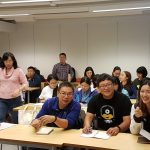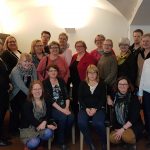A new article about immigrant children’s participation has been published. The research data includes more than 300 immigrant children observed in their daily activities. Especially peer relations are important, but the educator is the one who can help these children in positive participation. You can read the article by clicking the link below.
Arvola, O., Lastikka, A-L. & Reunamo, J. (2017). Increasing Immigrant Children’s Participation in the Finnish Early Childhood Education Context. The European journal of social & behavioural sciences EJSBS, 20 (3), 2539-2548.

